WHAAAAT…?
That’s my response every time I get an email from someone who wants to know why I talk about essential oils on a homesteading blog.
Okay, okay… to be fair, there was a time when I didn’t get the connection either. I thought essential oils were just expensive little brown bottles surrounded by a bunch of hype. I still use herbs too, but I’ve found essential oils to be much easier to use as they are more “grab and go”.
Truthfully, I don’t know how I homesteaded B.E.O. (that’s “before essential oils”, for the uninitiated…)
Actually, I do know– I spent a more time and money at the feed store buying stuff, and didn’t feel remotely as confident as I know now when I had an issue that needed to be addressed.
We all know essential oils are great for health and wellness (well, I’m guessing you know that, if you don’t, you do now), and cleaning the house of course, but when I say I use essential oils regularly in my barn, coop, and garden, I mean it.
The other day I started counting off a mental list of all the ways I like to use oils in my homesteading adventures, and I even surprised myself with how many I came up with. I’m sharing the list y’all here today– and I included applicable tutorials/links for each one, none of this generic “oils are great for gardens and animals” stuff. 😉
You can purchase essential oils directly from me HERE >>
30 Ways to Use Essential Oils for Homesteading
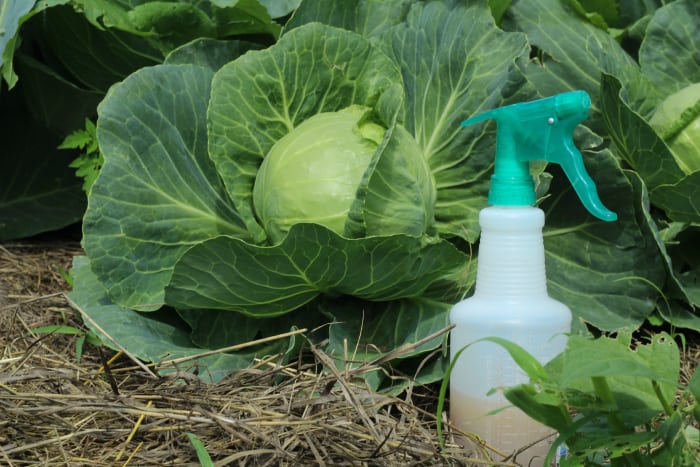
1. Organic Garden Pest Control
No one likes their garden veggies to be destroyed by insects, but most of us don’t love spraying pesticides on our food, either. There are about 15 billion (slight exaggeration) different oils that are fantastic for spraying in your garden to repel pests, including:
- Peppermint
- Cedarwood
- Lemongrass
- Arborvitae
- Patchouli
- Sage
- Spearmint
- Rosemary
- Basil
- Thyme
- Lavender
- Oregano
- Melaleuca (tea tree)
- Clove
- Neem
Here’s my recipe for organic pest control garden spray. It calls for peppermint essential oil, but you can substitute other oils, too.
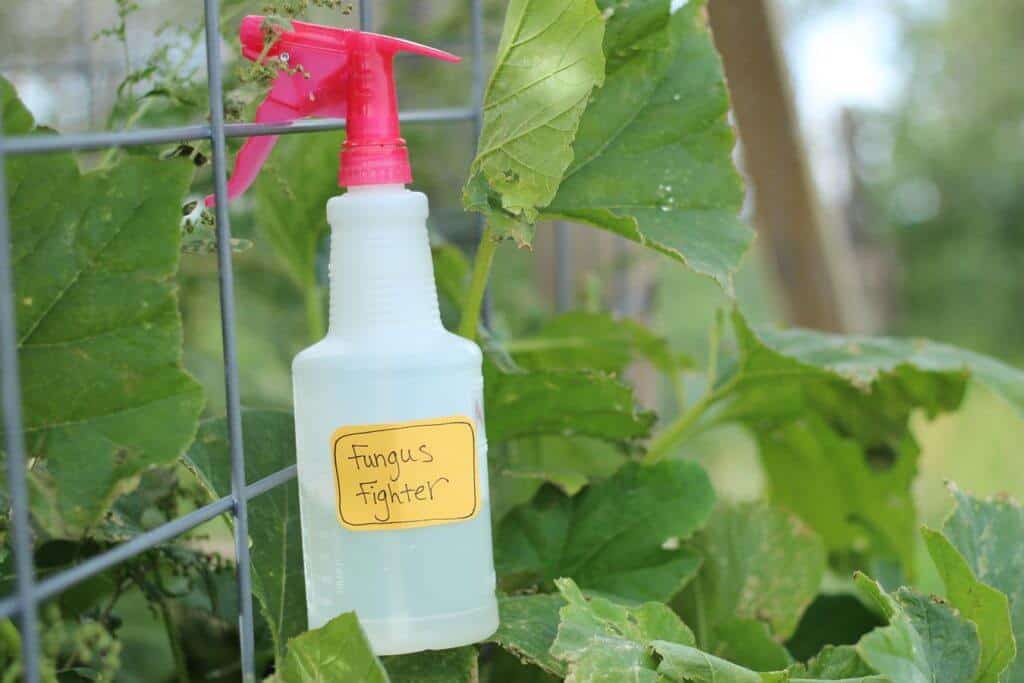
2. Fungal Spray for Plants
Melaleuca oil (tea tree) makes an effective fungal spray for plants, and it’s easy to mix up a spray bottle at home. Simply mix 10 drops of melaleuca essential oil or patchouli essential oil with 2 cups water. Shake well, and spray it on affected plants, or use it as a preventative.
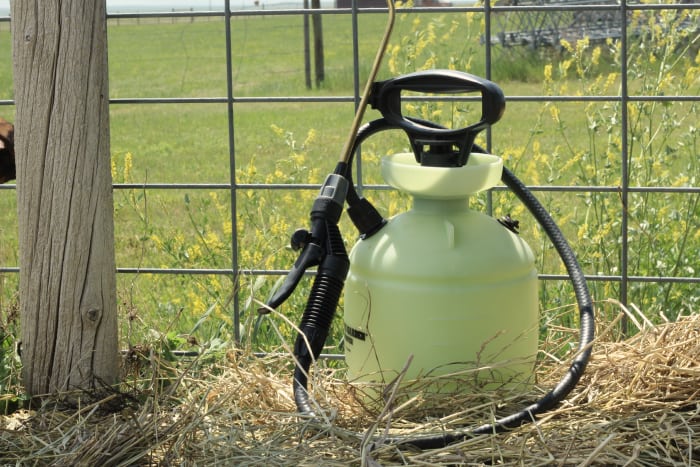
3. DIY Liquid Fence
Last year we were overrun with rabbits, which wasn’t a problem, other than the fact they were mowing down my poor garden. My stinky homemade liquid fence recipe calls for eggs, garlic, and clove essential oil. It seemed to work last summer, too, as long as I reapplied it every couple of weeks.
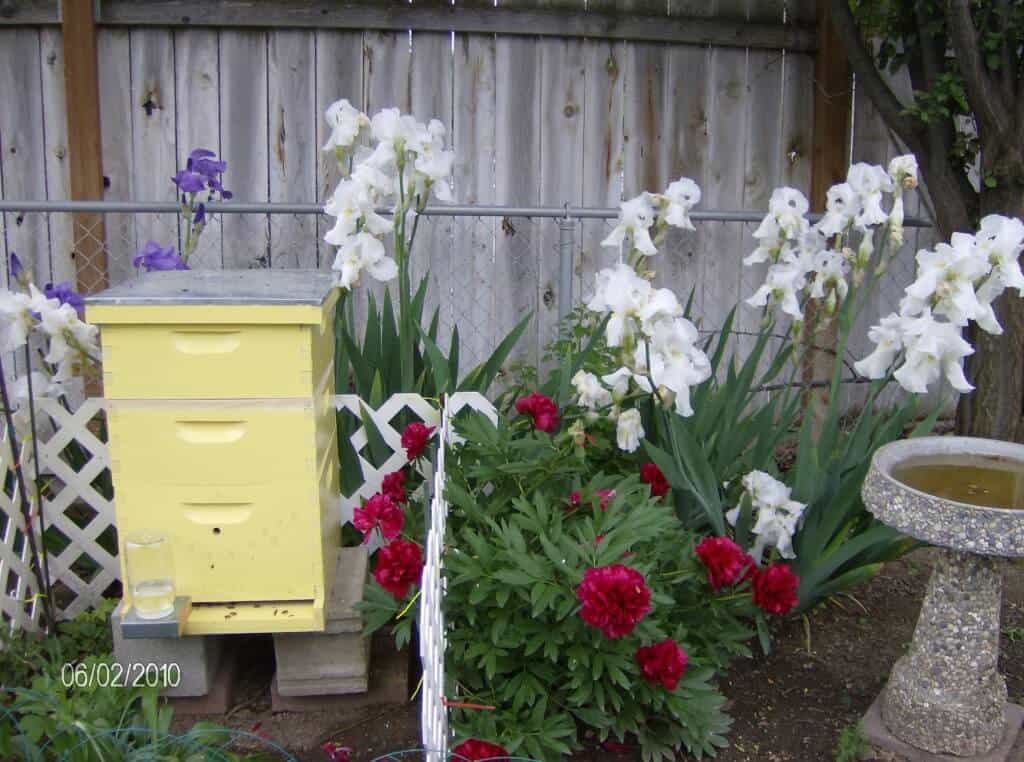
4. To Attract Pollinators
While many essential oils REPEL insects, there are some oils that attract bees and butterflies– and we definitely want those guys to hang around. Add 2-3 drops of one of the following essential oils to a cotton ball place them in strategic places in your garden to attract bees:
- Lavender
- Wild Orange
- Coriander
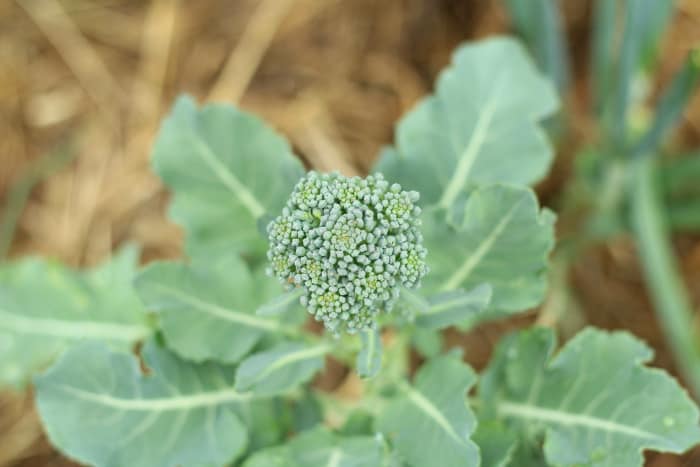
5. Garden Companions & Allies
It’s well known in gardening circles that some plants act as companions and have a mutually beneficial relationship if planted near one another. You can apply these same rules to essential oils as well– simply add 1-2 drops of the following oils to your watering can:
- Basil essential oil: For asparagus or tomatoes
- Chamomile essential oil: For the cabbage family or onions
- Dill essential oil: For the cabbage family
- Oregano essential oil: Cucumbers, melons, pumpkin, or squash
- Peppermint essential oil: For the cabbage family, tomatoes, or peas
- Rosemary essential oil: Carrots, the cabbage family, or beans
- Sage essential oil: Carrots
- Thyme essential oil: The cabbage family
You can purchase essential oils directly from me HERE >>
6. Goodbye Slugs
Like I mentioned in my deep mulch post, I thankfully don’t have any slug problems. However, I’ve heard rave reviews from people who have said they use a diluted mix of essential oil and water (I’d try 5 drops of oil in 1 cup water to start) to spray a ring around plants being bothered by slugs. These are the most commonly recommend oils for slugs:
- White fir essential oil
- Cedarwood essential oil
- Peppermint essential oil
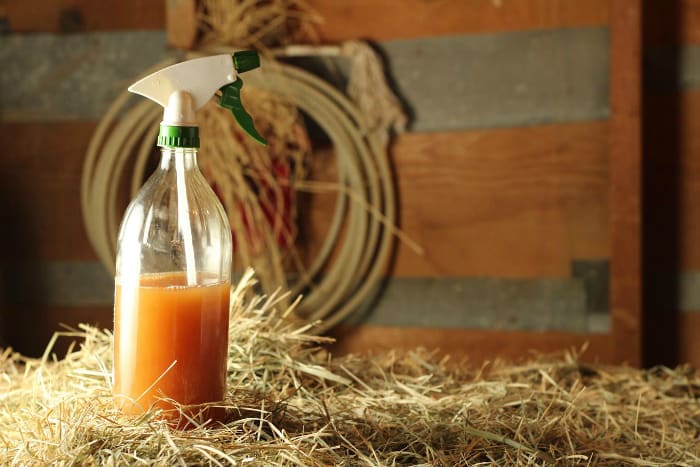
7. Homemade Fly Spray for Animals
This is one of my most-used ways to use oils in the barn. Mixing up homemade fly spray is simple, and gives your horses, cows, goats, or sheep relief without those nasty chemical sprays. You can use a ton of different oils in fly sprays, including:
- Peppermint
- Basil
- Rosemary
- Melaleuca
- Thyme
- Lavender
- Citronella
Click here for my full homemade fly spray recipe and tutorial.
8. Deter Mice
When you live in the country, mice are just a fact of life. Keep peppermint essential oil handy to repel the little buggers– you can place several drops on a cotton ball and stuff into areas where mice frequent, or try mixing up a peppermint/water spray and spritzing frequently in “mousy” areas.
9. Fighting Fleas and Ticks
Although we get occasional ticks, we have never had huge problems with them. However, these are the recipes I’d use if we had a flea infestation or frequent tick issues:
Flea Essential Oil Blend:
- 2 tablespoons carrier oil (such as fractionate coconut oil or almond oil)
- 10 drops clary sage essential oil
- 12 drops peppermint essential oil
- 5 drops lemon essential oil
Apply 2-3 drops to neck, chest, or collar to repel fleas. (Lemon can cause increased sun sensitivity, so please do not apply to exposed skin– only hair or a collar)
Tick Essential Oil Blend:
- 2 tablespoons carrier oil (such as fractionate coconut oil or almond oil)
- 6 drops geranium essential oil
- 6 drops lavender essential oil
- 4 drops myrrh essential oil
Apply 2-3 drops to neck, chest, or collar to repel ticks. Repeat as needed.
You can purchase essential oils directly from me HERE >>
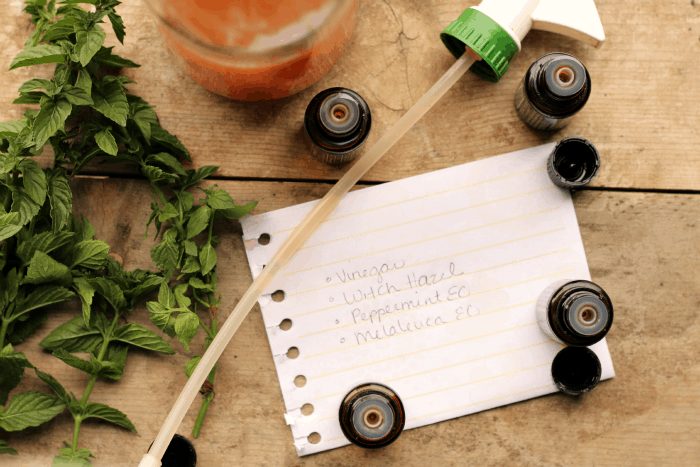
10. DIY Insect Repellent for Humans
Sometimes I get so consumed with keeping the bugs off my critters, I forget about myself. Until the pesky flies or mosquitos start attacking my legs… You can use your essential oil stash to mix up all sorts of insect repellents for yourself and your family as well. I actually have a free downloadable cheatsheet to help you figure out your own formulation, since I more tips for that than can fit in this post.
Grab the free DIY insect repellent cheatsheet here
11. Away with Ants!
Peppermint essential oil is a gem for repelling ants– regardless of whether they are in your garden, your house, or your barn. Mix up 15 drops of peppermint with around 2 cups water. Shake and spray where you see the ants entering. Plus, it smells pretty, too.
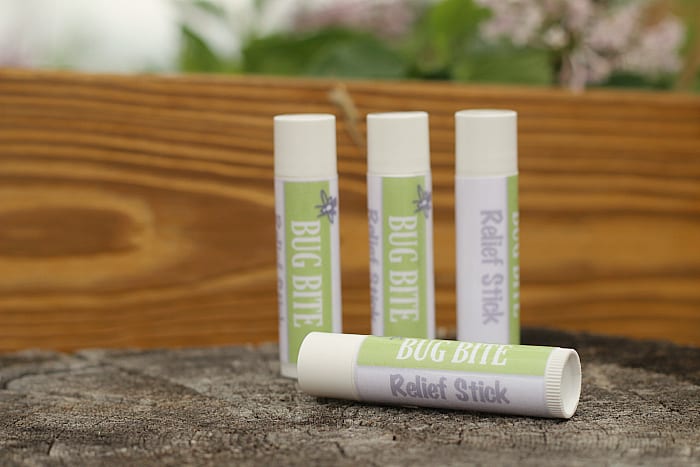
12. Bug Bite Remedy
Sometimes even the repellent measures we take still leave us with a few bug bites here and there. This is my FAVORITE quick remedy to soothe bites– we used it a bunch last summer and the Prairie Kids sought it out whenever the mosquitos or biting flies got the best of them. It stars peppermint and lavender essential oils—>DIY Bug Bite Stick Recipe
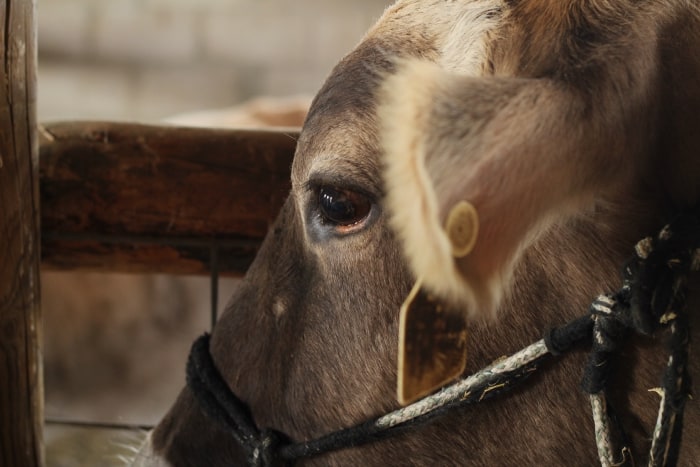
13. Calm Critters
I’ve found my dogs, horses, and even the cows seem to like essential oils just as much as I do. When one of our four-legged homestead members needs a bit of extra calming or soothing action, I break out lavender or frankincense essential oil and massage it into their neck or back. (This is particularly handy for dogs who hate thunder storms…) doTERRA’s Balance blend is another one that’s fabulous for this.
Tip for Using Oils on Animals: always allow the animal to smell the oil first, before you apply it. Some animals have dislikes for certain smells, and I figure it’s polite to “ask” their permission before smearing it all over them. 😉
Also– there is a LOT of debate of whether or not oils are safe for cats. I’ve used oils on cats with zero problems, and have talked to veterinarians who’ve done the same, however, there have been instance of toxicity. So proceed with caution, and if in doubt, just skip oils on cats.
14. Soothing Irritated Skin
I’m trying really hard to follow FDA guidelines in how I say this, but lavender, frankincense, or melaleuca essential oils are all very soothing when applied to “occasional skin irritations” in animals. 😉 You can use them diluted in a carrier oil or make a simple salve with them. Just follow the rule of letting the animal smell them first and don’t use them without diluting first.
You can purchase essential oils directly from me HERE >>
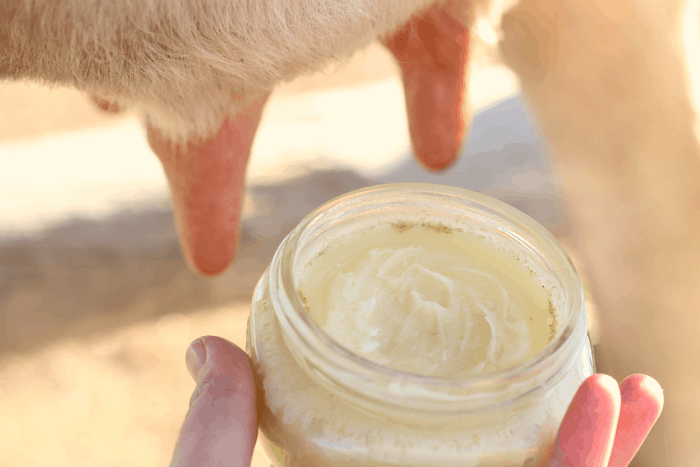
15. DIY Udder Balm
I LOVE this recipe– and Oakley the milk cow agrees. This is all I’ve used for years to soothe dry or cracked udders on my cow and goats. It works like a charm.
Grab my homemade udder balm recipe here.
16. Homemade Udder Wipes
Sometimes I just use water to wipe down my cow’s udder before milking, but I also mix up this recipe on occasion, and it works like a charm. It can be used on goats or cows and used lavender and melaleuca essential oils.
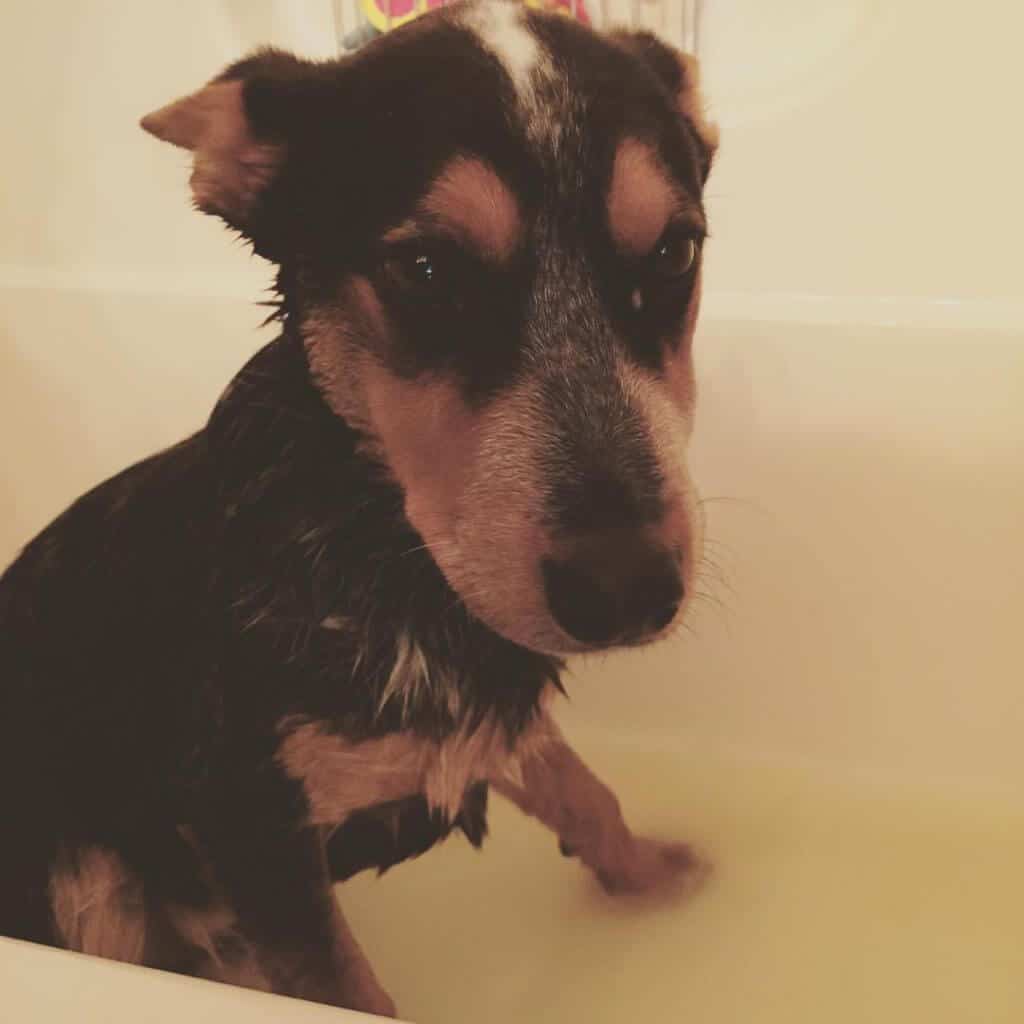
17. DIY Animal or Dog Shampoo
Our newest dog addition to the family (he goes by Tiny Turbo…) is a big fan of fresh cow pies and MUD. This is the recipe I used after his latest manure-laden adventure:
- 1 cup water
- 1/4 cup mild castile soap
- 2 drops lavender essential oil
- 2 drops cedar wood essential oil
Massage onto the wet dog and rinse well.

18. Chicken Coop Spray
This won’t take the place of regular coop cleanings, but I love spritzing this DIY chicken coop spray around the nesting boxes and feeders after I give the coop a good cleaning. I also suspect it helps to cut down on flies.
- 2 cups vinegar (how to make your own vinegar)
- 2 cups water
- 2 tablespoons real vanilla extract (how to make vanilla extract)
- 20 drops lavender essential oil
- 20 drops geranium essential oil
Combine all ingredients in a spray bottle. Shake well, and spritz generously in the coop wherever flies congregate.
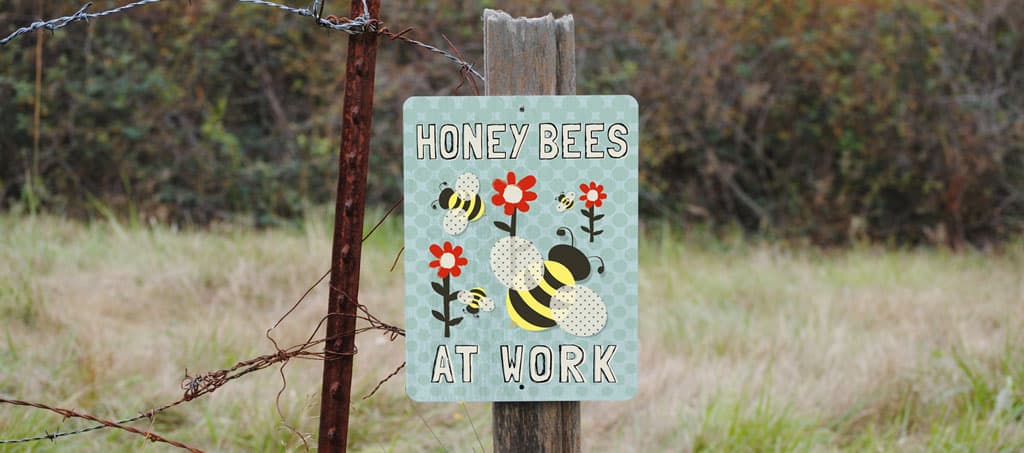
19. Essential Oils for Bees
I don’t have bees (yet), but it totally makes sense that a natural plant product like essential oils could have benefits for beekeepers. This beekeeping club website has a ton of solid info for you—>
20. Sticky Tree Sap
Get sap on our hands while chopping firewood or trimming trees on your homestead? Simply apply 1-2 drops of lemon essential oil, rub in thoroughly, and rinse off. Bam!
21. Easy Label Remover
Speaking of lemon essential oil, it’s also great for removing labels from jars or eliminating sticker/glue residue. (Because I don’t know about you, but I’m always repurposing glass jars!). Rub 1-2 drops of lemon oil into the sticky area, scrape off loosened glue, and rinse with warm, soapy water.
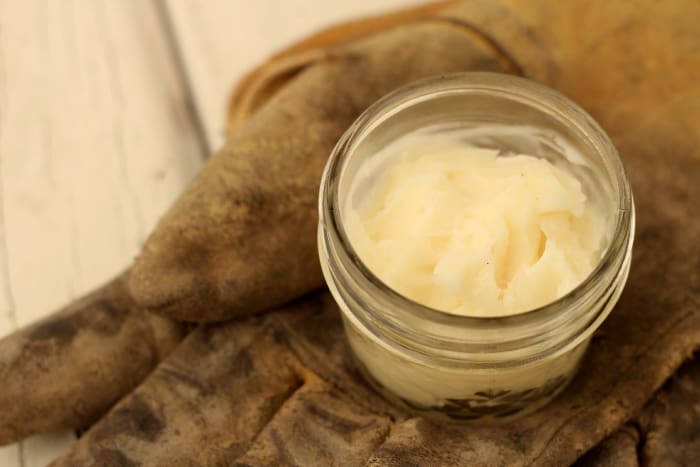
22. Relief for Gardening Hands
Homestead hands take a beating– especially if you prefer to garden without gloves like I do. This is my #1 favorite way to soothe hard-working hands– and many of you have written me to say it’s your favorite too!
DIY Gardener’s Hand Cream Recipe
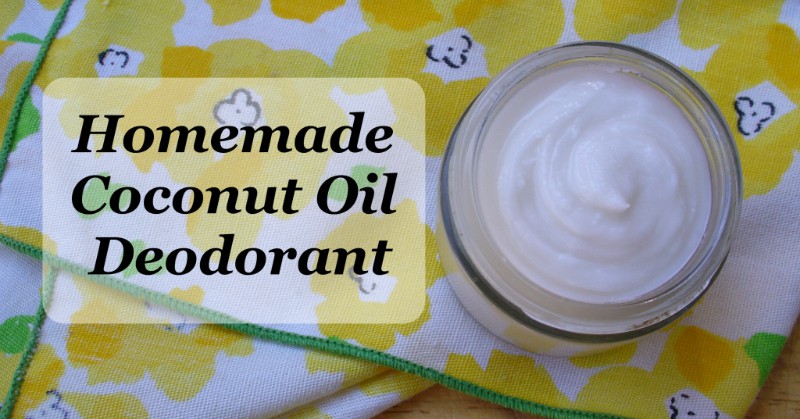
23. DIY Coconut Oil Deodorant
You’re gonna get sweaty when you’re outside cleaning pens or doing garden chores, so mix up a batch of the homemade natural deodorant to combat the stink. Adding several drops of melaleuca or lavender essential oil will boost its odor-fighting power, too.
DIY Coconut Oil Deodorant Recipe
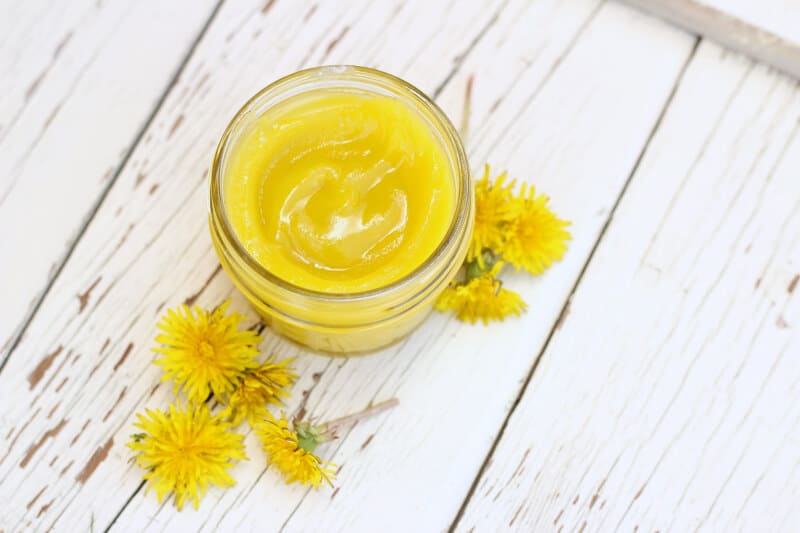
24. And Tired Muscles
Homesteading is a labor of love, but sometimes all that laboring can make you a little stiff and sore at the end of day. I created this recipe that calls for dandelion oil, marjoram, and white fir essential oils. Your muscles and joints will thank you!
Homemade Dandelion Muscle Rub Salve
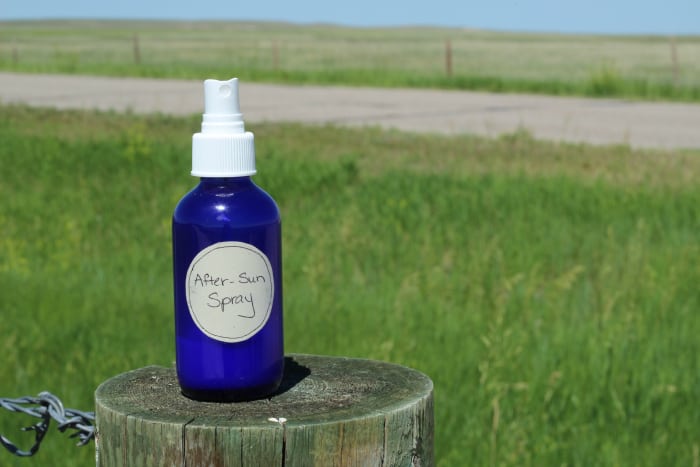
25. After Sun Spray
I have a light complexion, so I always wear a hat outside and generally try to keep my skin covered. However, every once in a while, I forget and require a bit of extra skin-soothing after a day spent gardening in this sun. This is my top remedy for that– and the Prairie Family agrees.
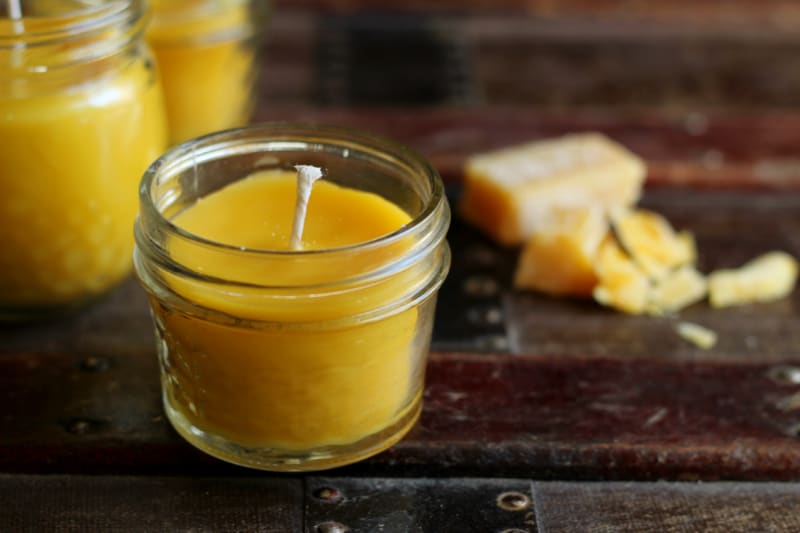
26. Candle Making
Whenever I make tallow or melt-n-pour beeswax candles, I always add some essential oils to the mix. You’ll find they aren’t quite as strong as some of the fragrance oils, but they do add a bit of scent and you don’t have to worry about chemicals in your candles.
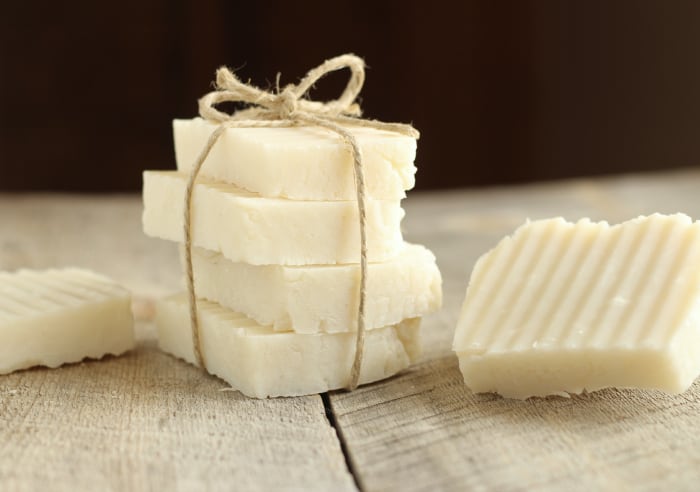
27. Soap Making
If you’re looking for a super strongly-scented soap, you probably *won’t* want to use essential oils, as it takes a LOT of oil to make a potent-smelling bar. However, I usually add oils to my homemade soap when I want a lightly smelling bar, and that has worked great for me. Here are my soap recipes for you to play with, too—>
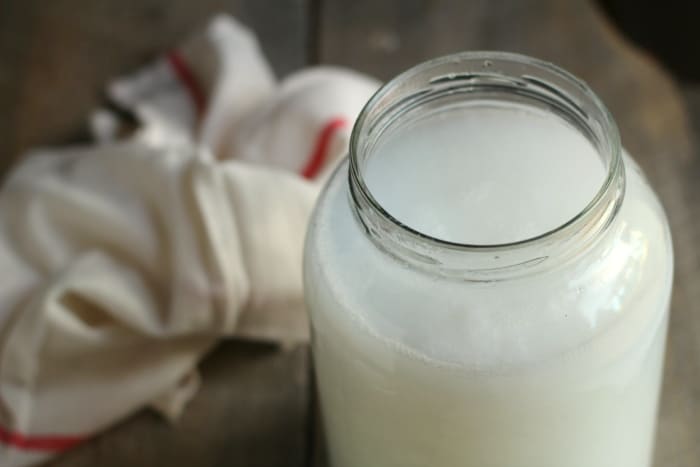
28. DIY Laundry Detergent
This recipe is so darn frugal, you won’t believe it. A BIG batch costs just a few bucks to make, and it’ll last forever. Add lemon, lavender, or melaleuca essential oil to boost its cleaning power. Be sure to line-dry in the sun after you wash, too!
DIY Laundry Detergent for Pennies
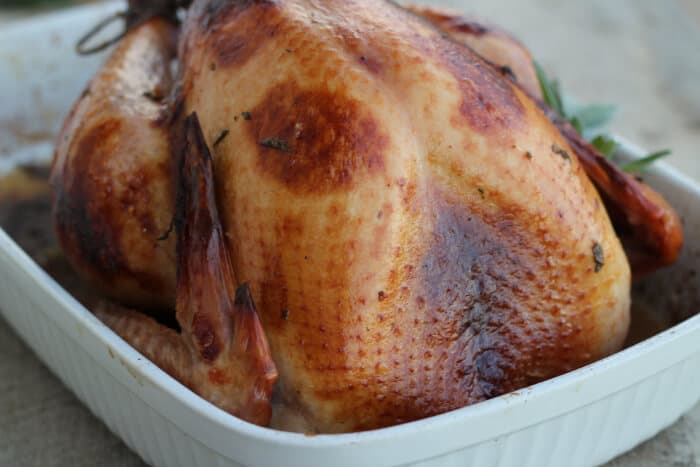
29. Meat Bird Brine
There are a bazillion ways you can use oils in cooking, and this post is long enough as it stands right now, so I won’t list all of them. However, I love adding herbal oils like thyme, rosemary, or basil to my brines when I am preparing to roast a turkey or chicken. They add a strong pop of flavor, and it only takes a drop or two.
My Turkey Brine Recipe (but it works for chickens too!)
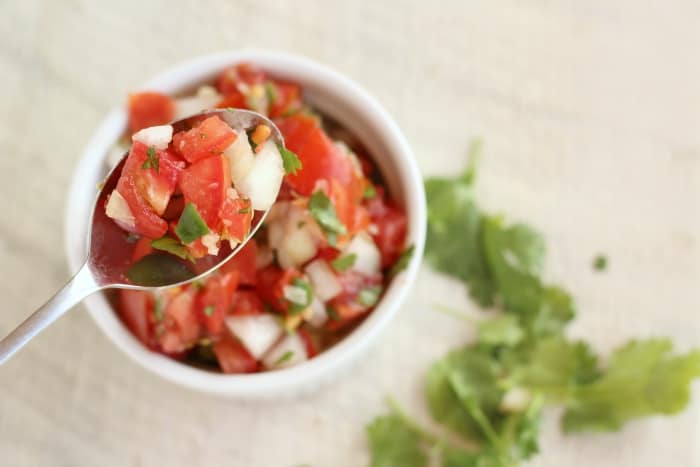
30. Super Awesome Salsa
I never seem to have lime juice or fresh cilantro when I need it, and the store is 40 miles away, so I rely heavily on lime and cilantro essential oils when I make my favorite pico de gallo salsa from garden tomatoes. Cilantro is also a fabulous addition to chili or chicken tortilla soup. Just remember to only use ONE drop– it’s potent!
Homemade Salsa with Lime and Cilantro Oil
Purchase essential oils directly from me HERE >>
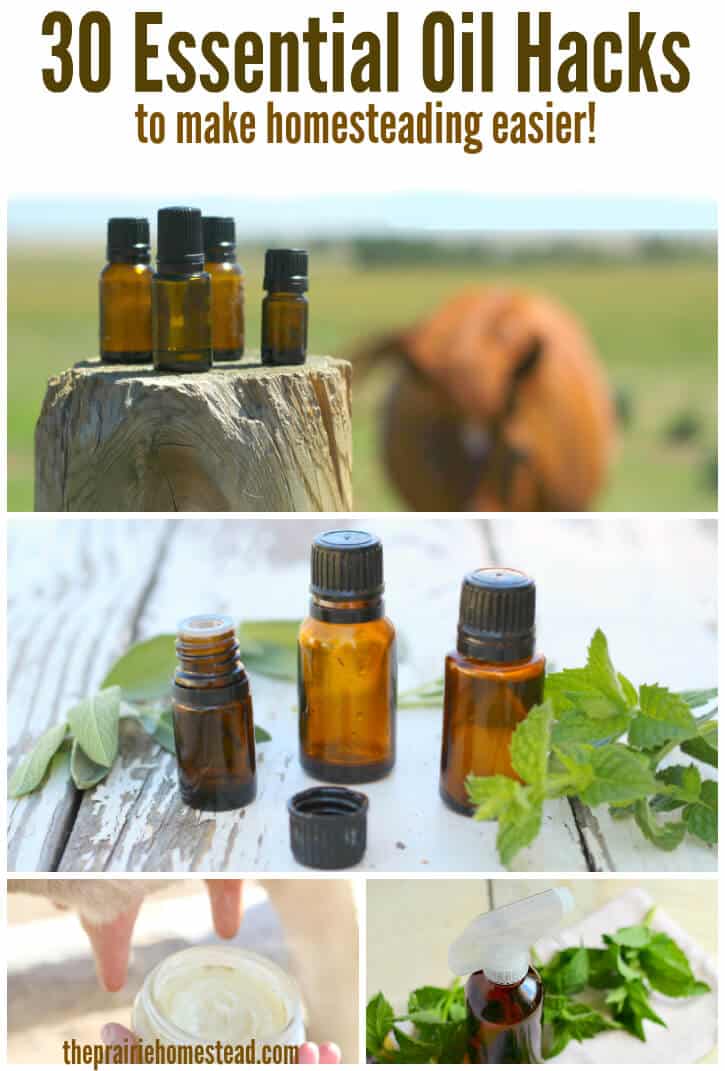
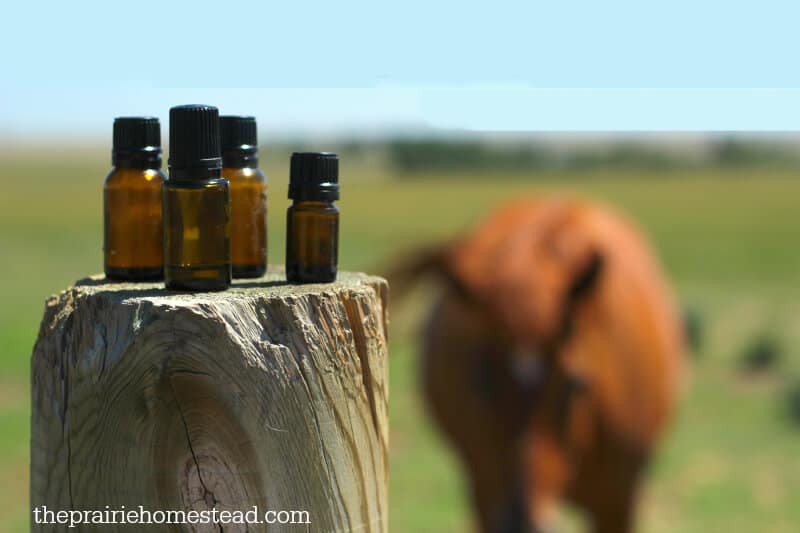

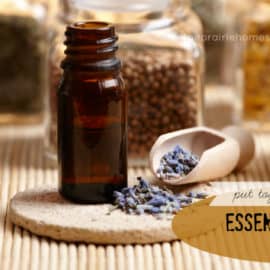
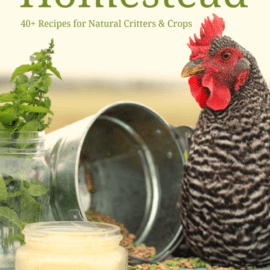

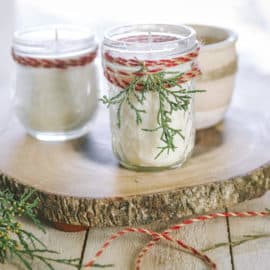
As a fellow doTERRA user I can’t thank you for this post enough! It is so full of great ideas and information that I can’t wait to use. Great job and thank you!
Yay! So glad it will be useful for you Jennifer! Enjoy!
Jill, I need help. I keep my cats’ litter boxes (2 big ones) down in the basement. No matter what I do, scoop 2x a day, change the litter 1x a month, the room just has this awful smell. I run a dehumidifier often, and housemates are allergic to artificial scents. When people visit, Im terrified of the stench wafting up. I’ve mopped the floor, searched hi and look for hidden surprises, just… stinks. What can I do with oils?
Hi Susan,
You do want to be very careful in using oils around cats. That being said, I have talked with a veterinarian who likes to add baking soda to litter boxes– and she recommended adding 1-2 drops of essential oil to the baking soda first. She said it really helped with the smell.
Wow, this was a great post! Looking forward to trying some of these recipes / formulas.
As I looked at all the bottles of homemade remedies filled with essential oils, I was feeling panicky about how much that would cost.
I agree that essential oils are great. They can work. However, if you are paying full retail for the oils – these are going to add up.
There are other solutions that work that aren’t as painful on the pocketbook. Companion planting, apple cider vinegar, garlic and homemade tinctures (made from the same plants the essential oils)…. are just a few excellent solutions that cost pennies compared to the essential oils.
🙂
Can you post some of those recipes for making tinctures at home? I love essential oils but I do have to make every dollar stretch.
Yes, there are other options, but since I have so many readers with an existing essential oil stash, I wanted to write a post specifically geared for essential oils to help them know how to use them confidently.
Also– I don’t really see EOs as being that expensive. An upfront investment, perhaps, but considering I never pay full retail and get a lot of free oils (anyone can do the same– you don’t have to buy in quantity, or resell to make that happen), they are pretty cost-effective for me. Especially since most recipes call for amounts in drops (not ounces), and they cut down on things I’m having to buy at the store anyway. 🙂
How does one get free oils or not pay full retail? I want in on that!! Thanks!
I tried to go to your recipe for insect repellent for humans and could not get the link to work. Could you repost that link, please. My daughter lives where there are lots of mosquitos and needs help.
Thank you for sharing your tips! (there’s no link to the bug repellant list)
Great list! Just an FYI: the link for tallow candles goes to the post for tallow soap 🙂
whoops! fixing it now.
Thank you so much for this post!!! Anxious to try these recipes both in the barn and the house.
Cheri
Ps….do you have a bug recope candle?
I hope they work wonderfully for you Cheri! I don’t have a bug candle recipe yet– but I have thought of adding some citronella oil to my diy beeswax candle recipe maybe?
I tried cedar oil on basil to combat japanese beetles last season. I diluted it as per recommended and the next day the basil was wilting and leaves were turning brown. And it did nothing to deter the beetles. Oddly enough I also read that basil itself would deter the beetles….. not in my case however, they were tearing it up out there.
Sometimes it takes a bit of experimenting…. Perhaps the mix was still too “hot” for the plants?
Thank you for this, particularly for the link to the beekeeping site, it has some good info! My son keeps bees in England and he uses a dab or two of clove oil on each hand to deter the bees, then he doesn’t use any gloves! I’m not that confident, but put a dab or two around my hat to keep them away from my face.
That is so neat about the clove oil!
As noted previously, the link for human bug repellent isn’t available. I would love to see that list. Looking forward to getting it from you!
Thanks
Great article! Love all the uses for essential oil. I have a ton but don’t use them nearly as often as I should. With this list I will be using them more. Thank you!
FYI – The link for the insect repellent cheatsheet isn’t there.
I can’t get the DIY sheet for insect repellent to open. Tried my phone & tablet. I agree that companion planting, lady bugs, diamiteous earth, apple cider vinegar, beer and many other cheaper just as effective ways are out there. As a Master Gardner in Texas Where BUGS reign Supreme if I used oils it wouldn’t pay me to grow anything?
This is seriously one of the best and most comprehensive lists I’ve ever seen. Thank you for teaching us all!
I’m trying to sign up for your mailing list and having an issue with the button just sending me back up to the top of the page. Is there another link that I could use? Thanks for your help!
You’re very welcome– if you send an email to info(at)theprairiehomestead(dot)com, my assistant can help you out. 🙂
This is a great list, Jill! We’ve had good success with an easy water + Peppermint oil spray in our organic garden. I’d love to experiment more with EOs in the garden…
Until I read this article I was one of those people who would have been saying “WHAT?”that you mention in the opening paragraph. I will be giving that much additional thought now.
Yay! 😉 Glad it was eye-opening for you!
Oh my goodness this post is amazingggggg!!!!! I love essential oils too, even though when you tell most people about them they look at you like you have six heads! Lolol. I use them in my house and for me and my doggies all the time, but I’ve never thought to use them in the garden! I am so excited to give some of these ‘recipes’ a try!! Thank you so much for sharing!
Much love,
Heather
So glad you are loving the post Heather! 🙂 Thanks for stopping by!
Well, I just tonight signed up, and after reading about essential oils, I’m impressed! I try to go completely organic, next I’m gonna read about soaps. No going to bed early tonight I guess!
I too have been using DoTerra oils for over 4 years now….I really like them alot….but, I do not believe they should be ingested or used for cooking. There are no oils that should be used this way unless under the care of a person who has studied oils for a very long time…..and DoTerra has not done that.
I loved your video and will try some of these outdoor recipes for sure.
Thank you.
Glad to here you are using doTERRA. There is a lot of fear online in regards to ingesting oils, but I think much of it is unfounded, as long as you use common sense. Essential oils are in many, many food items we’ve all eaten for decades. Not to mention when you are cooking with them, they are usually extremely diluted. (i.e. 1 drop in a large bowl of salsa). Therefore, I have no issue with using them as flavoring agents in cooking.
I cannot wait to try some of these recipes, particularly outside in the garden and for some pesky bugs! Thank you!!
Oddly enough I also read that basil itself would deter the beetles….. not in my case however, they were tearing it up out there.
What about soil gnats? Do you have a special recipe for them or will your garden spray for pests work to get rid of them if a plant is already infested with them? Thank you for any info you can give me.
Have you ever tried fennel or basil to increase milk supply for a goat that is nursing triplets? Thank you.
I have used fennel personally, but not with goats. It works for humans. 🙂
Jill sorry let me make my question clear…basil or fennel d?TERRA eo. Thanks
This is absolutely fantastic!!! I cannot wait to start trying almost all of these recipes!!! Thank you so so much for posting this!!
I love reading your blog and all the information you have about what you can do with essential oils. But I was wondering about which oils could I use to combat roaches. I live in the south so that is something we are always fighting with. I hate always having to use chemical sprays. Any ideas for natural ways to deal with them.
Do you have a recipe for dishwasher soap / detergent?
Great post ! I will try your recipes later. I encourage my self to do it after I read all about this. So inspiring and I got this one
just see this http://www.justbecauseicare.org/fundamentals-of-essentials-oils/ if you want to read for more information. I also learned a lot by that.
I have read alot about the oils, but how can we make our own! I understand it takes alot of herbs, and oil, but I still would be interested to make my own lavander,mint,ect.
Where is the list.? I don’t see a EO list.. I am interested in using the EO on our horses. Especially the ones with a little arthritis. Can you direct me to what oils are ok with horses
Wow, I am blown away at all the uses! I really love the laundry detergent one!